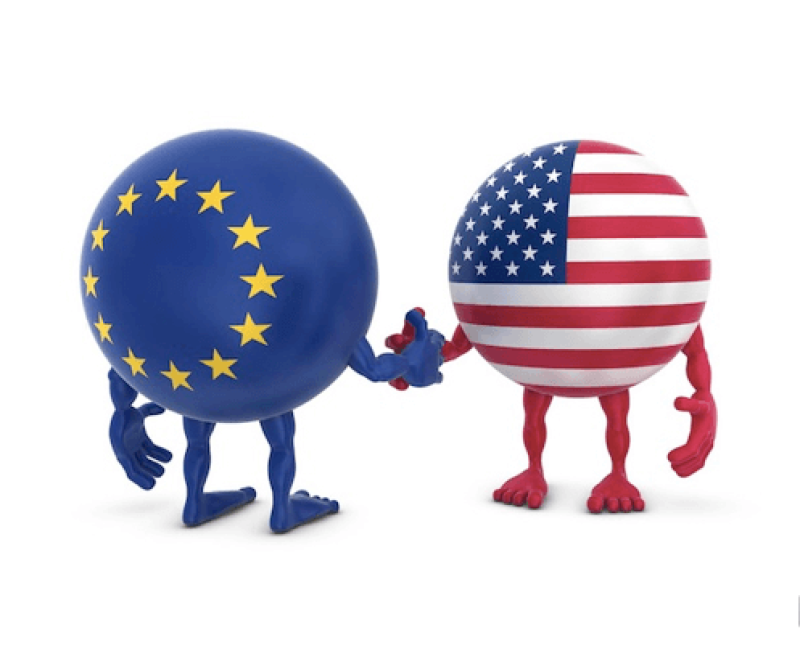Almost from the moment genetically engineered crops and non-medical products entered the worldwide marketplace, many European nations opposed cultivating them or importing some GMO foods, although Europe is one of the largest importers of GMO grain as animal feed. Biotechnology innovations in agriculture have been targeted, and have been the focus of emerging non-tariff trade barriers. These restrictions to world trade, the U.S. and other agriculture groups charge, discriminate against “GMOs” in violation of rules of international trade.
WTO-the trade dispute court
The key source of justice and administration of trade treaties is the World Trade Organization (WTO), based in Geneva, Switzerland. The trade agreements under the WTO’s jurisdiction were negotiated, signed, and ratified by most of the nations in the world that conduct international trade. These agreements help makers of products and services, exporters, and importers do business.
These agreements do contain clauses that protect signing countries against environmental and health risks. Unfortunately, members of the European Community have been successful at using some of these measures to block genetically engineered foods purely for political reasons.
Decision: the EU broke biotech treaties
Back in 2003, the WTO heard a list of grievances from the United States, Canada, Argentina and other countries against the European Union. These complaints included accusations the EU countries had imposed a de facto moratorium on the import of any genetically engineered “products” ( including feed, crops and food) and were using measures intended to protect host countries from infectious disease in order to block these GE imports.
The complaint by the U.S. and others centered on the EU’s (and member countries’) use of the precautionary principle, which states that no product can be approved until proven safe (but also states that regulations be proportional to the risk and assessments be taken for costs and benefits), and provisions under the WHO Agreement for Sanitary and Phytosanitary measures (the SPS Agreement), which allows prohibition or restriction of some food imports if, and only if:
- Measures taken to manage the risk are science-based
- Measures taken are proportional to the risk and no more disruptive that necessary for managing the risk
- Measures are developed in accordance with scientific principles and based on scientific evidence
In 2006, the WTO court found that The EU and several member countries violated these terms of the SPS Agreement several times. None of the “biosafety” regulations, purported to protect European citizens from “potentially harmful” genetically engineered agricultural products, met these requirements.
As for crops affected, the WTO court ruled that EU member states breached their agreements when blocking the following 21 products: Falcon oilseed rape, MS8/RF3 oilseed rape, RR fodder beet, Bt-531 cotton, RR-1445 cotton, Liberator oilseed rape, Bt-11 maize (EC-69), RR oilseed rape (EC-70), BXN cotton, Bt-1507 maize (EC-74) Bt-1507 maize (EC-75), NK603 maize, GA21 maize (EC-78), MON810 x GA21 maize, RR sugar beet, GA21 maize (food), Bt-11 sweet maize (food), MON810 x GA21 maize (food), Bt-1507 maize (food), NK603 maize (food), and RR sugar beet (food).
This array of blocked GM products include food, crops and feed (such as RR fodder beet). The EU had banned all GM-based animal feed, even though it is one of the world’s largest overall importer of animal protein — about 72 percent of its animal feed needs are met by imports. Most of the sources of those feed imports come from producers growing genetically modified feed, and in 2011, the EU changed its regulations to allow the import of genetically modified feed that wasn’t already prohibited and had a technically low-level of genetic modification. This rule did not extend to crops and food.
What’s happened since?
Not much. A series of 2012 meetings and workshops of the Council of the European Union ended with no solution towards the settlement required under the WTO judgement made six years earlier. Despite efforts from Hungary and Denmark (in particular) to develop compromise language and break a deadlock against GM imports, the Council concluded that “a political agreement on the GMO dossier is not possible.”
Some of this political rancor arose again during a recent vote of the European Parliament (EP), which disallowed host countries from individually banning the import or use of a genetically engineered food product. While food and trade associations praised the vote, the European Commissioner for Health and Food Safety declared that the proposal, even though it lost the EP vote, would not be withdrawn.
Whether the United States, Canada, or other nations will follow through on this decision, or on the EU’s anti-GMO import policies, remains to be seen.
Andrew Porterfield is a writer, editor and communications consultant for academic institutions, companies and non-profits in the life sciences. He is based in Camarillo, California. Follow @AMPorterfield on Twitter.































